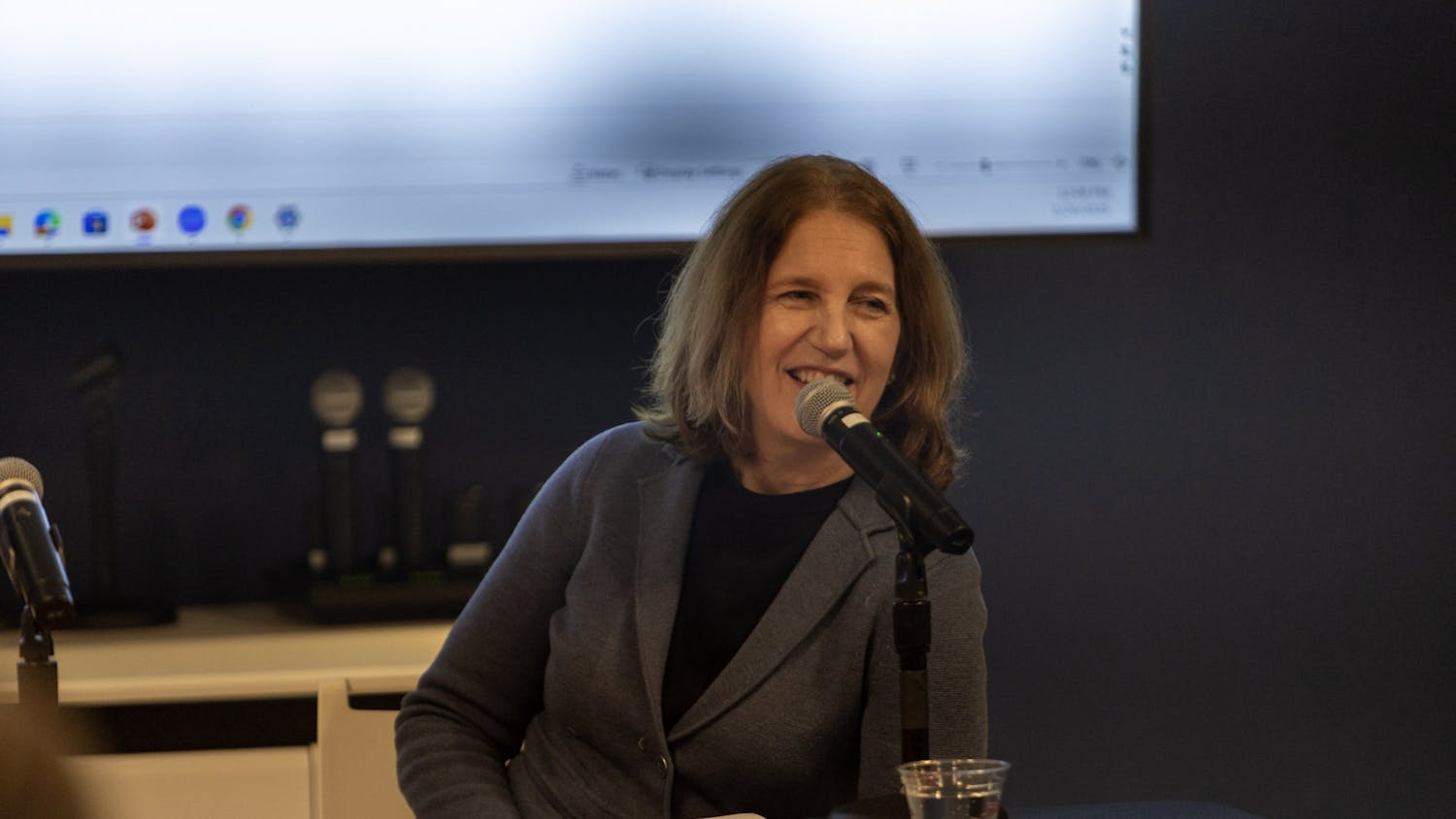Dr. Jeffrey Wigand last saw "The Insider," the film about how he blew the whistle on Big Tobacco, during a pre-release screening in 1999. Six years later, Wigand said he doesn't expect seeing it at the School of Communication Reel Journalism Film Festival on Friday will be very different.
"I don't think it's going to change much. It's etched in my mind. It's surreal in many aspects of it so not much will change," Wigand said. "It's not an entertaining movie for me, and I don't think people would expect it to be."
"The Insider" depicts five difficult years of Wigand's life as he decided to break his confidentiality agreement with Brown & Williamson Tobacco Corp., where he formerly worked as vice president of research.
Wigand said he decided to come forward with information that would endanger himself and his family because of his "moral compass."
"The knowledge I had could save lives," he said.
Wigand had evidence that Big Tobacco not only knew nicotine was addictive, but manipulated cigarettes to make nicotine more accessible. "The Insider" shows Wigand, played by Russell Crowe, as he struggles with whether to divulge the information that would bring one of the wealthiest and most powerful industries in the United States against him.
"These things you don't do lightly. There's a lot of concern on my part for the safety of my family and some of my reservations and skepticism actually proved true," Wigand said.
After working with "60 Minutes" producer Lowell Bergman (Al Pacino), and finally taping an interview, as well as giving a deposition in court and facing threats from undetermined sources, CBS dropped the story, fearing a multibillion-dollar lawsuit from Brown & Williamson.
"There was much financial gain to be realized in the top echelons of CBS," Wigand said.
CBS eventually aired the version with his interview, but only after it was divulged by print media.
Despite the trauma of the entire ordeal, Wigand does not regret his choices.
"I think the whole series of events that happened - CBS canceling ... death threats, etc. - all that made the story boil and boil and boil ultimately became what it was. It had a life of its own, and I'm not quite sure if I went back I could recreate it," Wigand said. "I'm very pleased with the outcome of where I am today."
Today he is in Michigan, where he works as a professor, but he also serves as a consultant for Canadian, Irish, Scottish, Italian and Icelandic governments, as well as with the European Union.
"I'm working on programs and policies that de-normalize the tobacco population," Wigand said.
In the United States, Wigand said he's pleased with progress some states and cities are making, citing New York's ban. However, he said the government has a "duty" to better regulate tobacco products by raising the taxes and requiring the industry products to list their ingredients.
Wigand also argued against those who claim they have a "right" to smoke.
"I don't think people understand what a right is. You can't produce a document saying you have a right to smoke - you have a right to harm people around you?" Wigand questioned. "Would you go into a bar with asbestos floating around? There's no difference in carcinogens between that and second-hand smoke."
Currently, the D.C. Council is debating whether to ban smoking in indoor workplaces and those who oppose the move say it would be an economic downfall for the hospitality industry. Wigand disagreed.
"That's an unfounded statement, it has no scientific background whatsoever. Show me one place that has gone belly up from going smoke free. Smoke-free environments increase business," Wigand said, citing statistics on California, Massachusetts and Ireland in which food sales increased and alcohol sales remained steady after restaurants banned smoking. "Are there no more bars and restaurants in California? In New York? It's the industry's traditional intimidation tactic."
Those who see "The Insider" can learn about the industry's intimidation in a fairly accurate context, Wigand said.
"In terms of the emotions, psychology and philosophy of that time I think ['The Insider'] is very accurate. What's not accurate is the timeline and chronology of the events as portrayed in the movie," Wigand said. "Many multiple events were [put] into one single event. When you take five years and compress them into two-and-a-half hours you have to use some creative license, but that did not detract ... from the feeling or the meaning to me."
Wigand said he himself is accurately portrayed, even though Crowe "did not sit in my back pocket for months trying to figure out who I was and what I did."
"[Crowe] did a remarkable jobs of emulating even the most subtle of actions that I go through, my walk, my gait, the way I push my glasses back on my nose and things like that," Wigand said.
But Crowe's performance and Wigand's increased influence after the full "60 Minutes" piece aired and the film was released meant nothing, as Wigand said protecting people was the real accomplishment.
"The bodyguards and the death threats and all that that was part of the price you pay for it, not all things in life are free. That wasn't a free ride, but I have no regrets and I would most certainly do it again. It would save the life of one if not many, and if my contribution has meant saving one life has it not been worth it"




